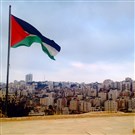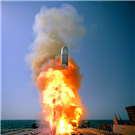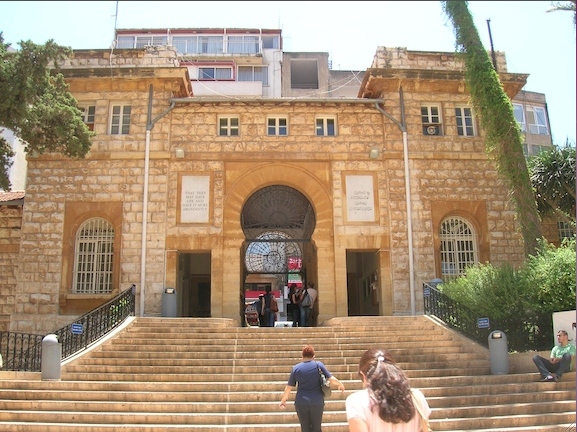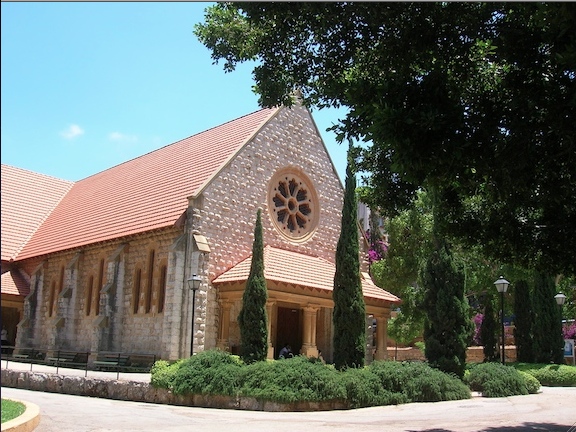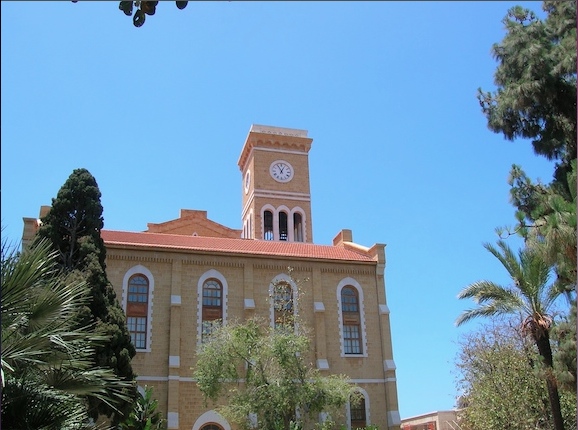Gilbert Achcar, “Eichmann in Cairo: The Eichmann Affair in Nasser`s Egypt.” Arab Studies Journal Vol. XX No. 1 (Spring 2012).
Jadaliyya (J): What made you write this article?
Gilbert Achcar (GA): The story of this article resembles that of my book The Arabs and the Holocaust, of which it can be seen as a sequel. In both cases, the initial impulse of writing was not the evolution of my ongoing research, but a fortuitous circumstance. The prelude to the book was a request made to me a few years ago to write a chapter on the Arab reception of the Holocaust for a multivolume work in Italian. This monumental history of the Nazi genocide of the Jews included a volume on its reception in various parts of the world, to which I was invited to contribute. Readers of the chapter, and later on publishers as well, encouraged me to turn it into a book, which ended up being a thick volume.
If I accepted the idea of carrying on this research, although it took me out of my way, it is because during my work on the chapter, I realized how massive the scale of the distortion of the historical record, and how harmful the misperception of the Arabs’ attitudes that this distortion fostered, are. This is true not only in the West, but also among the Arabs themselves, who, like most postcolonial peoples, are very sensitive to the image reflected back to them by Western mirrors. The vast range of responses to my book, whether positive or negative, proved how necessary and long overdue was the task I set myself. However, my book did not, and could not, exhaust this task, to be sure. It is the most comprehensive contribution to this task to date and settles factually quite a few debates, but it must certainly be complemented, as the “Arab-Israeli war of narratives” is still raging, and will continue for a long time to come.
This led to the second circumstance that prompted me to write the article: because of the book, I was invited to contribute a paper on the Arab reception of the Eichmann trial—the famous trial of the Nazi leader abducted from Argentina by an Israeli commando in 1960, then tried in Israel, and finally executed in 1962. This was for a symposium held in Berlin in May 2011 on the occasion of the trial’s fiftieth anniversary, jointly organized by the United States Holocaust Memorial Museum and the German Foundation Topography of Terror. After the symposium, I developed the paper into the long article that we are discussing.
J: What particular topics, issues, and literatures does it address?
GA: A choice had to be made in order to deal with the issue of the Arab reception of the trial—or to put it more accurately: the Arab receptions, in the plural, since, as I explained at length in my book, the depiction of the Arabs as a monolithic crowd with a single discourse is but a blatant manifestation of the essentialization that lies at the heart of Orientalism in the Saidian sense.
I could not in one single paper describe the range of attitudes that were reflected in the vast constellation of Arab media—nor was I interested in doing so anyway, as it would not be a useful endeavor, in my view. I chose to focus instead on the most powerful Arab ideological current at the time of the trial, which was Nasserism, of course. In the early 1960s, Nasser’s Egypt was setting the tone for the majority of Arabs with regard to Arab national causes, including Palestine. Al-Ahram, Egypt’s and the Arab region’s most important daily newspaper at the time, was seen as the political, ideological, and intellectual mouthpiece of Nasser’s regime. It was indeed not only the foremost reflection of the regime’s political views and attitudes, but also the main producer of these views and attitudes—after the speeches and statements by Nasser himself, needless to say. People wanting to know the position of Nasser’s Egypt on any public issue would read Al-Ahram during those years. My article is therefore a close study of the way Al-Ahram dealt with the Eichmann affair during the years 1960-62, as well as a study of all expressions of opinion on Nazism, Zionism, or the Jews that were published in the daily during the same period.
J: How does this work connect to and/or depart from your previous research and writing?
GA: My archival research on those two years of Al-Ahram illustrated and confirmed remarkably well the assessment of the Nasserist attitude on the Holocaust and related issues that I developed in one chapter of my book. Undertaking this research was very useful and instructive, as it showed how far the real attitude of the leading Arab nationalist regime was from the hostile caricatures depicting Nasserism as akin to Nazism.
The early 1960s were years of left radicalization of the Nasserist regime, with an influx of Marxists in its political institutions, including Al-Ahram’s editorial team. At the same time, the newspaper reflected the heterogeneity of Nasserism, in that it encompassed a variety of ideological sensitivities. A major ethical-political complexity resulted from the fact that the state that was responsible for the 1948 uprooting of the Palestinian people, and that had been a major participant in the 1956 colonial Suez War on Egypt, was a state inhabited by a large proportion of people who had fled to Palestine seeking refuge from Nazism, or who had come to the country as Holocaust survivors. So this problem is a very efficient touchstone for the evaluation of Arab political currents and their ability to make a clear and true distinction between struggle against Zionism and hatred of the Jews.
J: Who do you hope will read this article, and what sort of impact would you like it to have?
GA: The range of potential readers of this article is quite broad. Anyone interested in Nasserism, the history of Egypt and the Arab region in the 1960s, the Arab-Israeli conflict in general, the Palestinian cause, as well as anti-Semitism and Holocaust denial, will find food for thought in this study of the way Al-Ahram covered these topics during those dramatic years. Al-Ahram’s comments on the trial are also of interest for the study of the trial itself.
J: What other projects are you working on now?
GA: I am currently writing a book on the roots and dynamics of the ongoing Arab uprising. It will come out in March 2013, jointly published by University of California Press in the USA and Saqi Books in the UK. After that, I will write a long essay on Marxism and Orientalism for a collection of my own essays on related themes that will also come out next year—hopefully.
Excerpt from “Eichmann in Cairo: The Eichmann Affair in Nasser`s Egypt”
On 12 April, al-Ahram’s report on the first day of the trial started briefly on the front page and continued on the inside pages. It was based on a UPI dispatch and gave a detailed account of Servatius’s arguments disputing the legality of the trial. Much more important was Lutfi al-Khuli’s column on Eichmann in the newspaper’s opinion page (safhat al-ra’y) on the same day.[1] The author was not just an occasional contributor to that page but actually one of its editors. Lutfi al-Khuli was one of Egypt’s most renowned Marxists at the time, a writer known throughout the Arab world. His story must be briefly told here as he played a major role in al-Ahram from that point onward. It is an excellent illustration and indicator of the political-ideological evolution of Nasserism, with the sharp left-wing radicalization it went through from the early 1960s until its defeat at the hands of Israel in 1967.[2]
A lawyer by training and initial profession, Khuli had been an active member of the Egyptian Communist movement and as a result arrested and jailed several times. He left the Communist Party (the Hadeto wing) in 1955 due to his disagreement with its ultra-left denunciation of Nasser and the Non-Aligned Movement. He then organized a group of independent Marxist intellectuals, including former Communists and Trotskyists. Despite his resignation from Hadeto, which he did not make public, he was among the vast number of Communists arrested in 1959 at the peak of the confrontation between Nasser and the Communist movement. Khuli was eventually released at the end of 1960. Heikal knew him well and recognized that he was an independent Marxist, supportive of the left-wing radicalization of the regime. He convinced Nasser to let him recruit Khuli to al-Ahram, along with other Marxist members of his group. In early 1961, Khuli was put in charge of the opinion page; other members of his group (including Michel Kamil) also joined the editorial board.[3]
The title of Lutfi al-Khuli’s column was “Eichmann between Nazism and Zionism.” Published on the first day of the trial, the article noted, “Zionist propaganda is deliberately portraying our condemnation of the law-of-the-jungle method that Israel used in his abduction as a defense of Eichmann.” The article refuted these claims in the traditional logic of Arab Marxist anti-Zionism, including the emphasis on common traits between Zionism and Nazism, thus condemning them both.[4] The Arab peoples, it explained, were waging a revolutionary fight against colonialism and racism, and had never oppressed non-Zionist Jews. It went on to argue that Arabs made a clear distinction between Jews and Zionists. Thus, in Cairo’s al-Azhar district, one could find shops that are run by Jews along with shops run by Christians and Muslims. As anti-colonial and anti-racist revolutionaries:
it is not possible for us to defend Eichmann and Nazism for their hostile and racist attitude toward the Jews, as Israel’s propaganda pretends. Our natural stance is rather to oppose all that Eichmann and Nazism represent in anti-humanist conceptions and tendencies. And it is also natural that we oppose at the same time and by the same logic Ben-Gurion and world Zionism as a movement and aggressive entity.[5]
Nazism and Zionism were both seen as based on aggression and racism. “Eichmann the Nazi is responsible for the murder of millions of Jews in Europe, whereas Ben-Gurion the Zionist is responsible for the murder of thousands of Arabs, Muslims, and Christians, and the displacement of one million of them.” Khuli argued that this difference in scale did not matter as one could not be more than one hundred percent a murderer, as per a purported statement of Arnold Toynbee in a public debate with Israel’s ambassador to Canada. Khuli concluded:
That a murderer should try another murderer, and Zionism prosecute Nazism, looks more like an ironic caricature than an objective trial. The truth is that Israel fears an objective trial of Eichmann because it would have also uncovered Zionism’s crimes in the wake of Nazism’s. One day, sooner or later, Ben-Gurion or other Zionist leaders will stand in humanity’s accused box to be tried objectively for the crimes that Israel committed not only against Arabs but also against Jews who were misled with the slogan of the national home [at the cost of] their stability, security, and interests in various parts of the world.[6]
Notes
[1] Lutfi al-Khuli, “Aykhman, bayn al-naziyya wa’l-sihyuniyya,” al-Ahram, 12 April 1961.
[2] Lutfi al-Khuli’s political and intellectual trajectory is described and assessed in detail in Rami Ginat, Egypt’s Incomplete Revolution: Lutfi al-Khuli and Nasser’s Socialism in the 1960s (London: Frank Cass, 1997), which includes a biographical sketch (49-68).
[3] Ginat, Egypt’s Incomplete Revolution, 51-55.
[4] On Arab Marxist anti-Zionist arguments, see Gilbert Achcar, The Arabs and the Holocaust: The Arab-Israeli War of Narratives (New York: Metropolitan, 2010), 51-63.
[5] Al-Ahram, 12 April 1961.
[6] Ibid.
[Excerpted from “Eichmann in Cairo: The Eichmann Affair in Nasser`s Egypt” by Gilbert Achcar, by permission of the author; published in Arab Studies Journal Vol. XX No. 1 (Spring 2012). For more information on this issue of the journal, or to subscribe to Arab Studies Journal, please click here.]
![[Cover of Arab Studies Journal Vol. XX No. 1 (Spring 2012)]](https://kms.jadaliyya.com/Images/357x383xo/asj.jpg)
